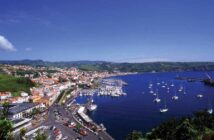- “The Door” (1987) by Magda Szabó – This novel explores the complex relationship between a writer and her mysterious housekeeper against the backdrop of Budapest’s changing social and political landscape.
- “Embers” (1942) by Sándor Márai – Set in a villa overlooking Budapest, this atmospheric novel delves into themes of friendship, betrayal, and love, as two old friends reunite after a long separation.
- “Journey by Moonlight” (1937) by Antal Szerb – This existential novel follows the journey of a man who, while on his honeymoon in Italy, becomes obsessed with returning to Budapest and rekindling his past.
- “Burning Secret” (1913) by Stefan Zweig – Although not entirely set in Budapest, this novella features the city as the backdrop for a forbidden relationship and the lengths one would go to keep a secret.
- “Satantango” (1985) by László Krasznahorkai – This experimental novel takes place in a decaying Hungarian village but often references Budapest, exploring the dark and melancholic existence of its characters.
- “Kaddish for an Unborn Child” (1990) by Imre Kertész – Though not exclusively set in Budapest, this deeply introspective novel by Nobel laureate Kertész tackles themes of memory, loss, and the Holocaust, tying them to the author’s personal experiences in Budapest.
- “The Bridge at Andau” (1957) by James A. Michener – Based on real events, this non-fiction book recounts the Hungarian Revolution of 1956, including the uprising in Budapest and the subsequent mass exodus across the Austrian border.
- “Parallel Stories” (2005) by Péter Nádas – An epic novel that weaves together multiple narratives spanning historical periods, this work explores the lives of various individuals in Budapest, touching on political and personal struggles.
- “Budapest Noir” (2008) by Vilmos Kondor – Set in 1936, this crime novel follows the investigations of a journalist—a noir-style hero navigating the gritty underworld of Budapest—looking into a murder tied to powerful politicians and Nazi sympathizers.
- “Metropole” (1970) by Ferenc Karinthy – In this Kafkaesque novel, a linguist attending a conference in Helsinki finds himself mysteriously transported to an unknown city, which turns out to be Budapest, where he grapples with language barriers and a sense of isolation.
WANDERLIST: Ten famous novels set in Budapest
0
Share.




